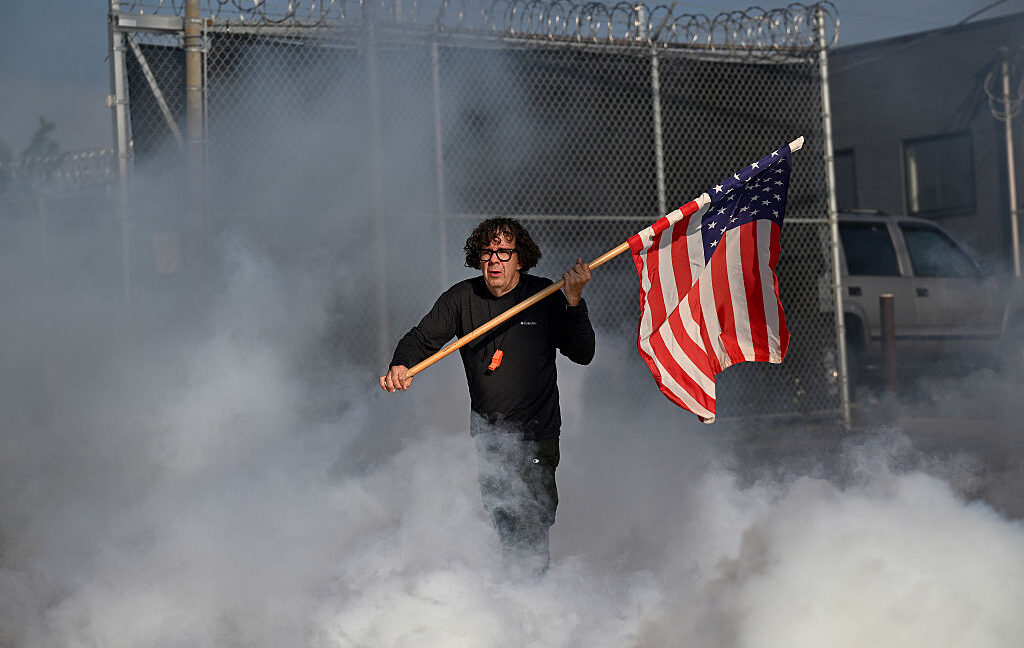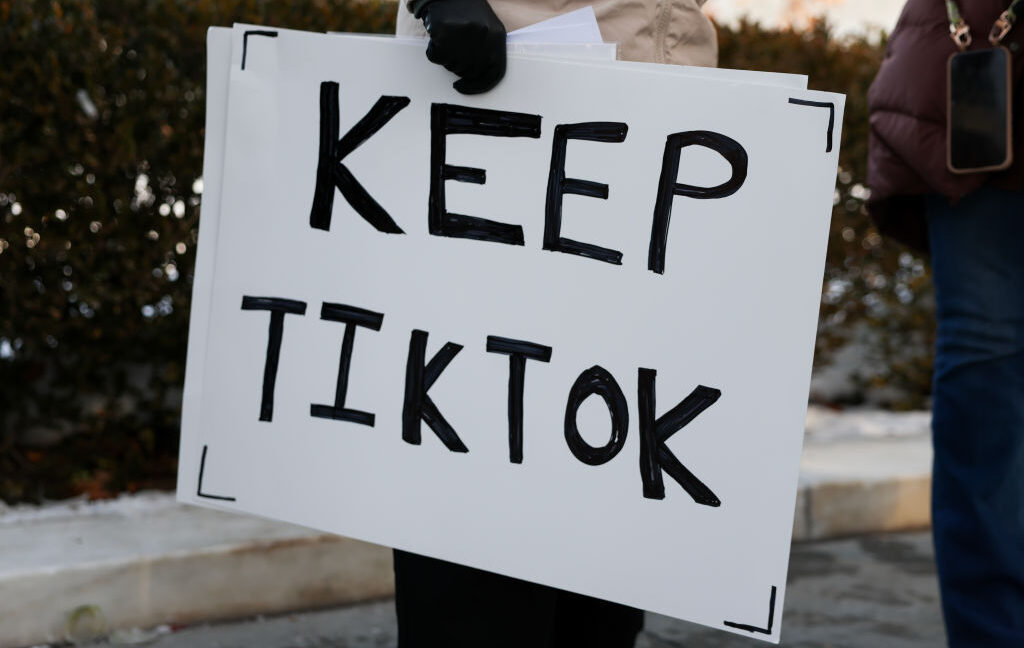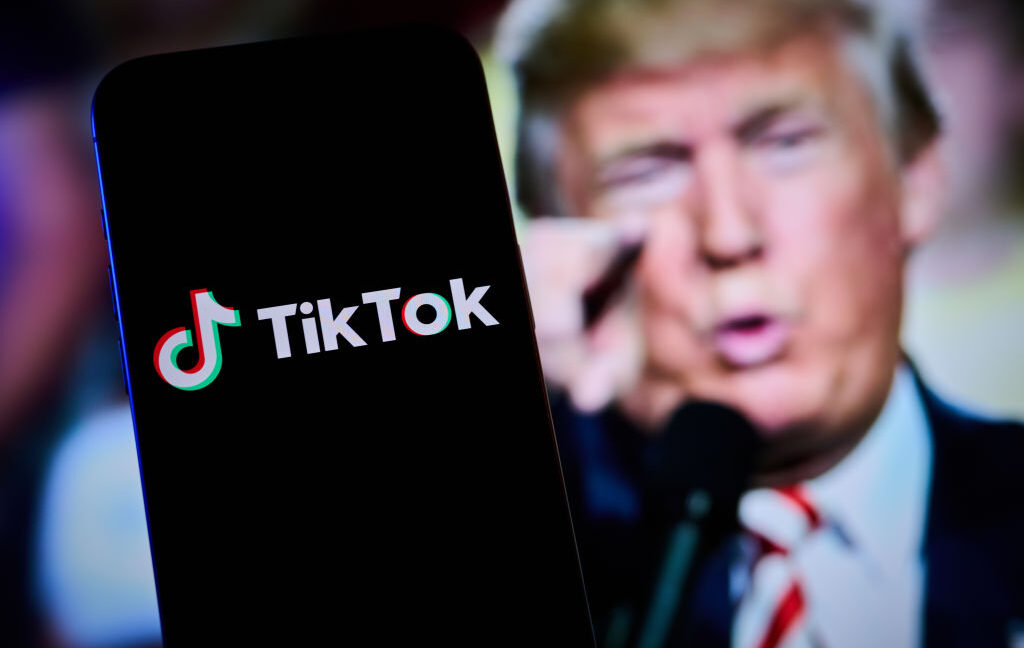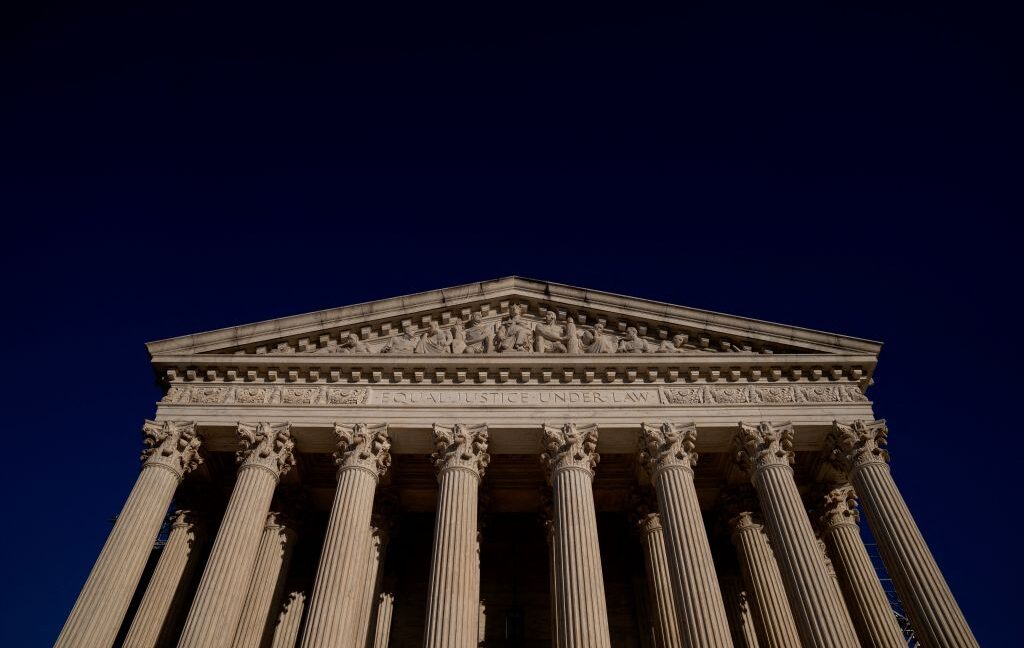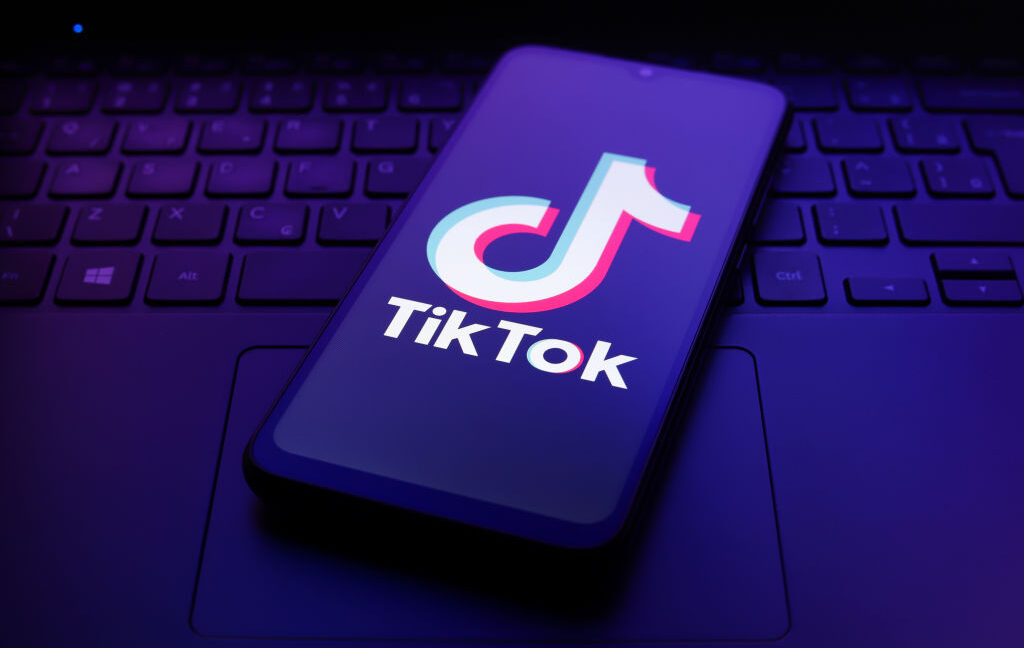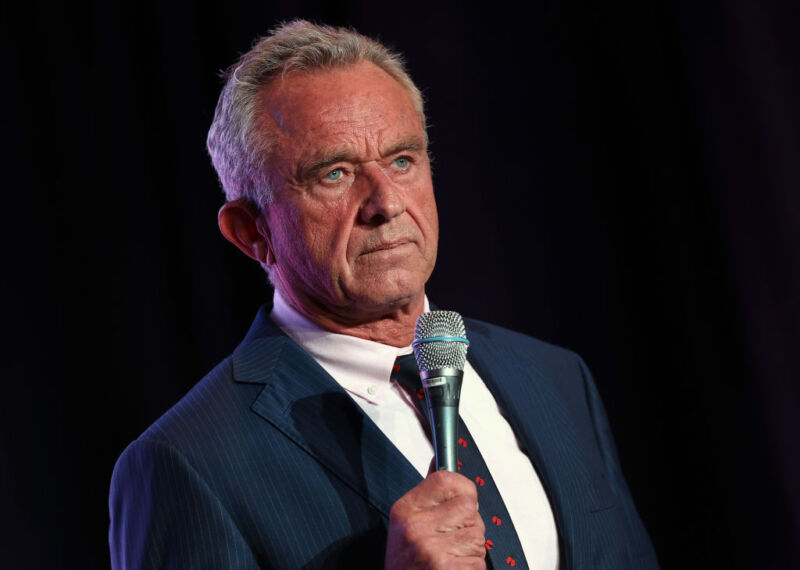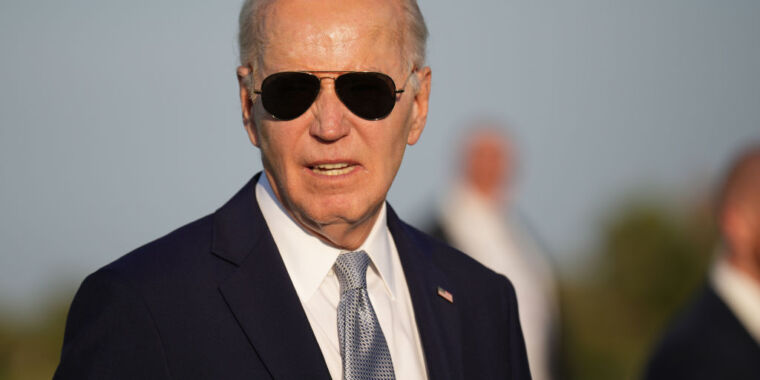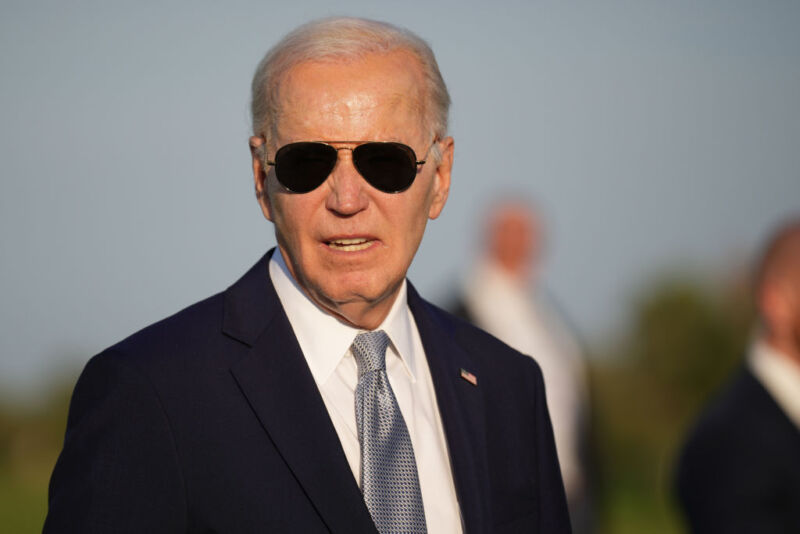ICEBlock lawsuit: Trump admin bragged about demanding App Store removal
ICEBlock creator sues to protect apps that are crowd-sourcing ICE sightings.
In a lawsuit filed against top Trump administration officials on Monday, Apple was accused of caving to unconstitutional government demands by removing an Immigration and Customs Enforcement-spotting app from the App Store with more than a million users.
In his complaint, Joshua Aaron, creator of ICEBlock, cited a Fox News interview in which Attorney General Pam Bondi “made plain that the United States government used its regulatory power to coerce a private platform to suppress First Amendment-protected expression.”
Suing Bondi—along with Department of Homeland Security Secretary Kristi Noem, Acting Director of ICE Todd Lyons, White House “Border Czar” Thomas D. Homan, and unnamed others—Aaron further alleged that US officials made false statements and “unlawful threats” to criminally investigate and prosecute him for developing ICEBlock.
Currently, ICEBlock is still available to anyone who downloaded the app prior to the October removal from the App Store, but updates have been disrupted, and Aaron wants the app restored. Seeking an injunction to block any attempted criminal investigations from chilling his free speech, as well as ICEBlock users’ speech, Aaron vowed in a statement provided to Ars to fight to get ICEBlock restored.
“I created ICEBlock to keep communities safe,” Aaron said. “Growing up in a Jewish household, I learned from history about the consequences of staying silent in the face of tyranny. I will never back down from resisting the Trump Administration’s targeting of immigrants and conscripting corporations into its unconstitutional agenda.”
Expert calls out Apple for “capitulation”
Apple is not a defendant in the lawsuit and did not respond to Ars’ request to comment.
Aaron’s complaint called out Apple, though, for alleged capitulation to the Trump administration that appeared to be “the first time in Apple’s nearly fifty-year history” that “Apple removed a US-based app in response to the US government’s demands.” One of his lawyers, Deirdre von Dornum, told Ars that the lawsuit is about more than just one app being targeted by the government.
“If we allow community sharing of information to be silenced, our democracy will fail,” von Dornum said. “The United States will be no different than China or Russia. We cannot stand by and allow that to happen. Every person has a right to share information under the First Amendment.”
Mario Trujillo, a staff attorney from a nonprofit digital rights group called the Electronic Frontier Foundation that’s not involved in the litigation, agreed that Apple’s ban appeared to be prompted by an unlawful government demand.
He told Ars that “there is a long history that shows documenting law enforcement performing their duties in public is protected First Amendment activity.” Aaron’s complaint pointed to a feature on one of Apple’s own products—Apple Maps—that lets users crowd-source sightings of police speed traps as one notable example. Other similar apps that Apple hosts in its App Store include other Big Tech offerings, like Google Maps and Waze, as well as apps with explicit names like Police Scanner.
Additionally, Trujillo noted that Aaron’s arguments are “backed by recent Supreme Court precedent.”
“The government acted unlawfully when it demanded Apple remove ICEBlock, while threatening others with prosecution,” Trujillo said. “While this case is rightfully only against the government, Apple should also take a hard look at its own capitulation.”
ICEBlock maker sues to stop app crackdown
ICEBlock is not the only app crowd-sourcing information on public ICE sightings to face an app store ban. Others, including an app simply collecting footage of ICE activities, have been removed by Apple and Google, 404 Media reported, as part of a broader crackdown.
Aaron’s suit is intended to end that crackdown by seeking a declaration that government demands to remove ICE-spotting apps violate the First Amendment.
“A lawsuit is the only mechanism that can bring transparency, accountability, and a binding judicial remedy when government officials cross constitutional lines,” Aaron told 404 Media. “If we don’t challenge this conduct in court, it will become a playbook for future censorship.”
In his complaint, Aaron explained that he created ICE in January to help communities hold the Trump administration accountable after Trump campaigned on a mass deportation scheme that boasted numbers far beyond the number of undocumented immigrants in the country.
“His campaign team often referenced plans to deport ’15 to 20 million’ undocumented immigrants, when in fact the number of undocumented persons in the United States is far lower,” his complaint said.
The app was not immediately approved by Apple, Aaron said. But after a thorough vetting process, Apple approved the app in April.
ICEBlock wasn’t an overnight hit but suddenly garnered hundreds of thousands of users after CNN profiled the app in June.
Trump officials attack ICEBlock with false claims
Within hours of that report, US officials began blasting the app, claiming that it was used to incite violence against ICE officers and amplifying pressure to get the app yanked from the App Store.
But Bondi may have slipped up by making comments that seemed to make it clear her intentions were to restrict disfavored speech. On Fox, Bondi claimed that CNN’s report supposedly promoting the app was dangerous, whereas the Fox News report was warning people not to use the app and was perfectly OK.
“Bondi’s statements make clear that her threats of adverse action constitute viewpoint discrimination, where speech ‘promoting’ the app is unlawful but speech ‘warning’ about the app is lawful,” the lawsuit said.
Other Trump officials were accused of making false statements and using unlawful threats to silence Aaron and ICEBlock users.
“What they’re doing is actively encouraging people to avoid law enforcement activities, operations, and we’re going to actually go after them,” Noem told reporters in July. In a statement, Lyons claimed that ICEBlock “basically paints a target on federal law enforcement officers’ backs” and that “officers and agents are already facing a 500 percent increase in assaults.” Echoing Lyons and Noem, Homan called for an investigation into CNN for reporting on the app, which “falsely implied that Plaintiffs’ protected speech was illegally endangering law enforcement officers,” Aaron alleged.
Not named in the lawsuit, White House Press Secretary Karoline Leavitt also allegedly made misleading statements. That included falsely claiming “that ICEBlock and similar apps are responsible for violent attacks on law enforcement officers, such as the tragic shooting of immigrants at an ICE detention facility in Dallas, Texas, on September 24, 2025,” where “no actual evidence has ever been cited to support these claims,” the lawsuit said.
Despite an apparent lack of evidence, Apple confirmed that ICEBlock was removed in October, “based on information we’ve received from law enforcement about the safety risks associated with ICEBlock,” a public statement said. In a notice to Aaron, Apple further explained that the app was banned “because its purpose is to provide location information about law enforcement officers that can be used to harm such officers individually or as a group.”
Apple never shared any more information with Aaron to distinguish his app from other apps allowed in the App Store that help people detect and avoid nearby law enforcement activities. The iPhone maker also didn’t confirm the source of its information, Aaron said.
However, on Fox, Bondi boasted about reaching “out to Apple today demanding they remove the ICEBlock app from their App Store—and Apple did so.”
Then, later during sworn testimony before the Senate Judiciary Committee, she reiterated those comments, while also oddly commenting that Google received the same demand, despite ICEBlock intentionally being designed for iPhone only.
She also falsely claimed that ICEBlock “was reckless and criminal in that people were posting where ICE officers lived” but “subsequently walked back that statement,” Aaron’s complaint said.
Aaron is hoping the US District Court in the District of Columbia will agree that “Bondi’s demand to Apple to remove ICEBlock from the App store, as well as her viewpoint-based criticism of CNN for publicizing the app, constitute a ‘scheme of state censorship’ designed to ‘suppress’” Aaron’s “publication and distribution of the App.”
His lawyer, Noam Biale, told Ars that “Attorney General Bondi’s self-congratulatory claim that she succeeded in pushing Apple to remove ICEBlock is an admission that she violated our client’s constitutional rights. In America, government officials cannot suppress free speech by pressuring private companies to do it for them.”
Similarly, statements from Noem, Lyons, and Homan constituted “excessive pressure on Apple to remove the App and others like it from the App Store,” Aaron’s complaint alleged, as well as unconstitutional suppression of Aaron’s and ICEBlock users’ speech.
ICEBlock creator was one of the first Mac Geniuses
Aaron maintains that ICEBlock prominently features a disclaimer asking all users to “please note that the use of this app is for information and notification purposes only. It is not to be used for the purposes of inciting violence or interfering with law enforcement.”
In his complaint, he explained how the app worked to automatically delete ICE sightings after four hours—information that he said could not be recovered. That functionality ensures that “ICEBlock cannot be used to track ICE agents’ historical presence or movements,” Aaron’s lawsuit noted.
Rather than endangering ICE officers, Aaron argued that ICEBlock helps protect communities from dangerous ICE activity, like tear gassing and pepper spraying, or alleged racial profiling triggering arrests of US citizens and immigrants. Kids have been harmed, his complaint noted, with ICE agents documented “arresting parents and leaving young children unaccompanied” and even once “driving an arrestee’s car away from the scene of arrest with the arrestee’s young toddler still strapped into a car seat.”
Aaron’s top fear driving his development of the app was his concern that escalations in ICE enforcement—including arbitrary orders to hit 75 arrests a day—exposed “immigrants and citizens alike to violence and rampant violations of their civil liberties” that ICEBlock could shield them from.
“These operations have led to widespread and well-documented civil rights violations against citizens, lawful residents, and undocumented immigrants alike, causing serious concern among members of the public, elected officials, and federal courts,” Aaron’s complaint said.
They also “have led some people—regardless of immigration or citizenship status—to want to avoid areas of federal immigration enforcement activities altogether” and “resulted in situations where members of the public may wish, when enforcement activity becomes visible in public spaces, to observe, record, or lawfully protest against such activity.”
In 2001, Aaron worked for Apple as one of the first Mac Geniuses in its Apple Stores. These days, he flexes his self-taught developer skills by creating apps intended to do social good and help communities.
Emphasizing that he was raised in a Jewish household where he heard stories from Holocaust survivors that left a lasting mark, Aaron said that the ICEBlock app represented his “commitment to use his abilities to advocate for the protection of civil liberties.” Without an injunction, he’s concerned that he and other like-minded app makers will remain in the Trump administration’s crosshairs, as the mass deportation scheme rages on through ongoing ICE raids across the US, Aaron told 404 Media.
“More broadly, the purpose [of the lawsuit] is to hold government officials accountable for using their authority to silence lawful expression and intimidate creators of technology they disfavor,” Aaron said. “This case is about ensuring that public officials cannot circumvent the Constitution by coercing private companies or threatening individuals simply because they disagree with the message or the tool being created.”
ICEBlock lawsuit: Trump admin bragged about demanding App Store removal Read More »
